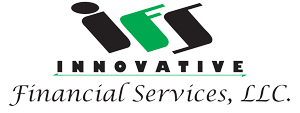The last thing most entrepreneurs want is for their hard-earned dollars to go down the drain because of a money leak in their business. Since so many entrepreneurs are working harder than ever before earning their living, it just makes sense to shore up every profit leak possible. But you might not know where they are or what to look for. That’s where we can help.
NOT HAVING A DAILY CASH/REVENUE REPORT:
The more you can stay on top of your daily receipts, the more information you will have at your fingertips to know what changes you need to make in your business. When you track and pay attention to daily trends, you will be alerted to shifts in the marketplace faster and can take action faster to speed cash flow.
Even if your business is very small, tracking cash daily will make you more aware of what you need to do to reach the numbers you want to make in your business. Choose one or more accounting measures to track for this report: daily revenue billed, daily revenue collected, cash increase in your bank account, or another measure. Allocate just a few minutes at the end of each day reviewing the daily activity in your business. You’ll learn a lot about what action you need to take to get your numbers where you want them to be and you can celebrate when you get there!
NOT BEING CAUGHT UP ON YOUR RECONCILIATIONS:
Today’s online banking accessibility gives some entrepreneurs a false sense of security when it comes to being able to estimate cash balances. Having online access to your cash accounts is not the same as performing a good old-fashioned reconciliation from source documents.
Only a reconciliation will catch big bank errors like a deposit that has failed to be posted to your account. If your reconciliations are not completed accurately, you could be losing thousands of dollars in errors not caught.
NOT DOING ALL THE RECONCILIATIONS IN YOUR BUSINESS:
Most business owners take care to reconcile their checking accounts each month. But what about all the other accounts that need reconciling? Be sure you have procedures in place to reconcile everything that needs to be reconciled.
Consider the following: inventory, accounts receivable, the cash drawer, merchant accounts, PayPal, your shopping cart, petty cash, accounts payable, credit card accounts, vendor statements, bank loans, mortgages or leases, equity accounts, prepaid and deferred accounts, and fixed assets, just to name a few of the most common ones.
Make sure you have internal controls in place to reconcile all of the accounts you need to in your business.
DOING DOUBLE WORK:
The days of having to do data entry are coming to an end. If you are manually entering data from one system into another, there may be a better way. Automate that process, and free up staff time to do more important things.
NOT BENEFITING FROM TIME TRACKING:
Even if you don’t sell services or charge by the hour in your business, time tracking will help you discover where you and your staff are spending time so that you can manage it. You can’t manage what you don’t measure, and although most of us despise tracking our time, we need some way to know where our most valuable resource is going.
If the idea of time tracking turns your stomach but you know you need to measure results by employee, there are other ways. Set up your accounting system so that it tracks results by employee, whether it’s sales, customer service, or some other measure.
NOT MEASURING JOB OR CUSTOMER PROFITABILITY:
Do you know which jobs, customers, or projects are more profitable than others? The first step is to be able to measure revenue and expenses at the job, customer, or project level. Then you can compute your profitability at a more detailed level than the enterprise-wide number that’s on your Profit and Loss statement.
There’s huge power in knowing these detailed profit numbers, because then you can go after jobs, customers, and projects that are more profitable and avoid the ones that are less profitable.
NOT UNDERSTANDING GOOD DEBT AND BAD DEBT:
Bad debt means one thing to accountants, but here we mean something else. Bad debt is using credit cards and other high-interest rate debt for daily survival expenses such as food, rent, entertainment, and other consumable items with no resale value. Bad debt is to be avoided. If you don’t have enough cash to pay for these items once they become due, you may be over- extended in your business and headed for big cash flow troubles.
Good debt is debt that can help you grow your business. Good debt includes items such as mortgages and building leases, college loans and other education to improve your skills, and automobile loans and other loans made to purchase equipment and other assets that will hold their value over time.
Take a look at which kind of debt appears on your balance sheet, and take steps to reduce the bad debt. Good debt planning will help you stay solvent and keep you afloat in both good and bad times.
POOR OR NONEXISTENT RECORDKEEPING:
Even the top bookkeepers in their field can’t make up for a business owner that’s disorganized and chaotic in their recordkeeping. Some of the things we recommend avoiding include a checking account that’s used for both business and personal, losing receipts and therefore deductions, and failing to track mileage and other recordkeeping that the IRS requires. All of these things can cause more taxes to be paid than necessary.
Poor money habits add up to higher bookkeeping expenses, especially at tax time. The good news is there are easy fixes for most issues once you put some new habits in place.
NOT BEING WILLING TO MAKE CHANGES TO YOUR ACCOUNTING SYSTEM:
Most clients procrastinate making changes to the accounting system until the system is in chaos or is costing them an arm and a leg. Of course, it’s your business and you know your priorities better than anyone. Just be sure fear is not getting in the way of good priority-setting in your business.
The good news is, once you’ve made the changes, the savings can be huge and the relief in stress that you feel is priceless. When you can move from reactive to proactive in any area of your business, you and your business benefit.
When you can overcome these ten money leaks, your business accounting system will transform from a compliance headache to a powerful and effective tool to help you run your business better.
I hope you enjoyed this free special report. Please give us a call if we can help you with any of your accounting needs.

